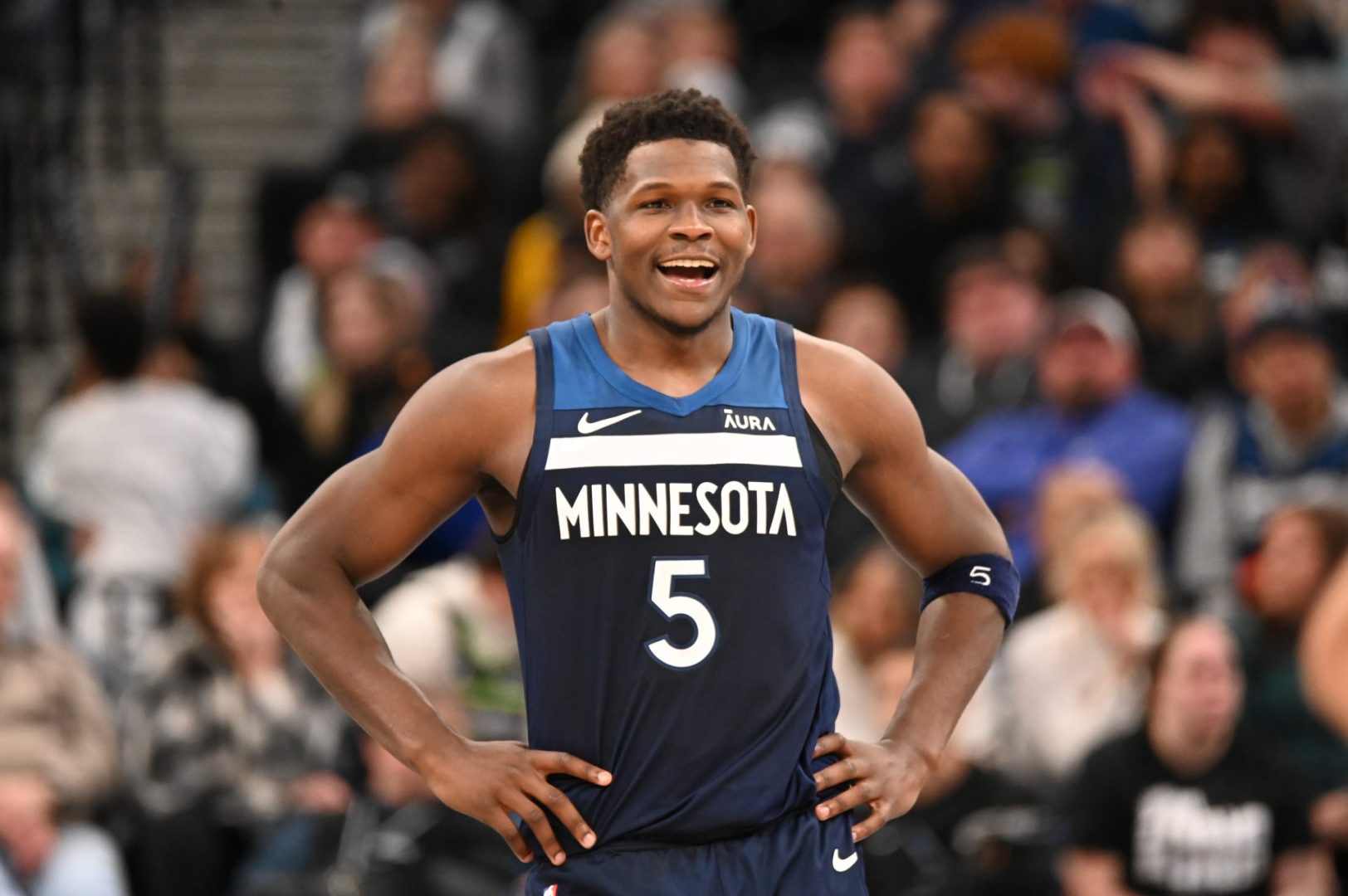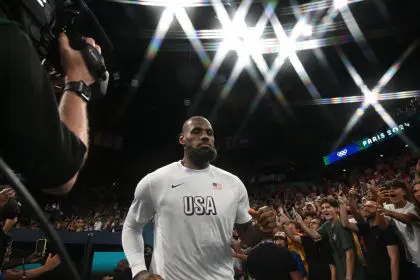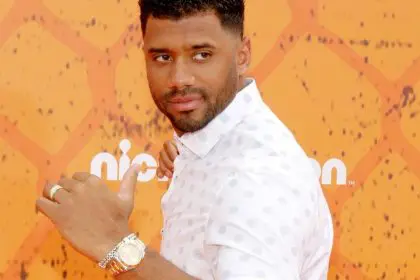Anthony Edwards, the Minnesota Timberwolves’ dynamic shooting guard, finds himself at the center of intense scrutiny following pointed criticism from former NBA player Kendrick Perkins. During a heated segment on ESPN’s First Take, Perkins challenged Edwards’ suitability to become the league’s premier representative, raising questions that extend far beyond basketball statistics.
The controversy stems not from Edwards’ impressive court performances, which have consistently demonstrated his elite athleticism and scoring ability, but from ongoing personal matters that Perkins believes disqualify him from NBA stardom’s highest echelon. The former Boston Celtics forward specifically referenced Edwards’ current legal disputes with Ayesha Howard, who is the mother of his child, suggesting these complications undermine his potential as a franchise cornerstone.
Personal conduct standards define modern superstars
Perkins articulated a clear vision of what constitutes NBA leadership in today’s entertainment-driven sports landscape. According to his analysis, becoming the league’s face requires meeting multiple criteria that extend well beyond athletic excellence. While acknowledging Edwards’ undeniable talent and marketability through signature shoe deals and highlight-reel performances, Perkins emphasized that contemporary superstars must embody role model characteristics.
Perkins emphasized that becoming the face of the league requires checking multiple boxes, including developing a signature shoe, appearing in commercials, and creating memorable highlights. However, he stressed that role model status remains equally important, noting that off-court behavior significantly impacts a player’s reputation.
The ESPN analyst went further to explain that many NBA icons maintained family-oriented images throughout their careers. He specifically referenced how LeBron James, Kobe Bryant, and Stephen Curry became known not only for their athletic achievements but also for their dedication as family men. Perkins suggested these personal characteristics played crucial roles in their marketability and public appeal, asserting that stable family relationships contribute to professional success.
“You gotta check the boxes when you’re the face of the league…Larry Bird, Magic Johnson, Michael Jordan, Kobe Bryant, Shaq, LeBron, Steph…they all were family men. They all were married with kids.” – Kendrick Perkins on Anthony Edwards pic.twitter.com/U8zFUZaYX2
— Awful Announcing (@awfulannouncing) May 27, 2025
Historical precedent among basketball legends
Perkins reinforced his argument by examining successful NBA icons who maintained strong family foundations throughout their careers. He specifically highlighted LeBron James, whose marriage to Savannah has remained stable since high school, creating a narrative of consistency and commitment that resonates with mainstream audiences.
Similarly, the late Kobe Bryant cultivated a devoted family man image during his later career years, often bringing his daughters to games and publicly celebrating his wife Vanessa. Stephen Curry’s relationship with Ayesha Curry has become synonymous with wholesome family values, generating positive media coverage and lucrative endorsement opportunities.
These examples demonstrate how personal stability can amplify professional success, creating marketing synergies that benefit both individual athletes and the league’s overall brand. Perkins argued that Edwards lacks this foundational element, potentially limiting his commercial appeal and leadership credibility.
Media scrutiny intensifies athlete expectations
The contemporary sports media environment creates unprecedented visibility into athletes’ personal lives, making private matters increasingly relevant to professional careers. Social media platforms amplify every interaction, legal document, and relationship development, transforming personal choices into public narratives.
For emerging stars like Edwards, who entered the NBA at age 19, this scrutiny presents unique challenges. Young athletes must simultaneously develop their professional skills while navigating complex personal relationships under intense public observation. The pressure to maintain perfect public personas can conflict with normal human experiences and growth processes.
Digital media consumption patterns also influence fan expectations, with audiences demanding authentic connections to their favorite players. However, authenticity must be balanced against commercial viability, creating tension between genuine self-expression and calculated image management.
Edwards’ Response and Future Implications
While Edwards has not directly addressed Perkins’ specific criticism, his social media presence and public statements suggest confidence in his trajectory toward NBA stardom. The young guard continues focusing on basketball development while managing personal responsibilities, indicating his commitment to both professional and family obligations.
The Minnesota Timberwolves organization has consistently supported Edwards throughout various challenges, recognizing his value as both a player and franchise cornerstone. Team executives understand that young athletes require time and support to mature into leadership roles, particularly when balancing demanding professional schedules with personal growth.
Edwards’ commercial partnerships remain strong, with major brands continuing to invest in his potential despite ongoing controversies. This suggests that corporate sponsors may prioritize athletic performance and marketability over traditional family structure requirements.
Evolving standards in professional sports
The debate surrounding Edwards reflects broader conversations about changing expectations for professional athletes in contemporary society. Traditional family structures no longer represent the only path to respectability, with many successful individuals creating alternative approaches to personal fulfillment and responsibility.
Younger generations of sports fans often prioritize authenticity and relatability over conventional respectability politics. These audiences may actually appreciate Edwards’ willingness to navigate complex personal situations while maintaining professional excellence, viewing such experiences as more genuine than carefully constructed public personas.
The NBA’s global expansion also introduces diverse cultural perspectives on family structures and personal relationships. International markets may have different expectations regarding athlete behavior, potentially reducing the impact of domestic criticism on overall commercial viability.















